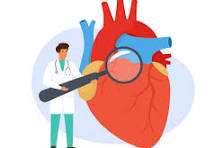Mon-Sat 9am-7pm











Allergists/Immunologists are specialized doctors who diagnose, treat, and manage allergies, asthma, and immune system disorders. These medical professionals play a crucial role in helping patients with conditions ranging from hay fever to life-threatening anaphylaxis, as well as autoimmune diseases.
This guide will help students understand what an Allergist/Immunologist does, the required skills, responsibilities, pros and cons of this career, salary expectations, and more.

Diagnosing Immune Disorders and Allergies:
Developing Treatment Plans:
Patient Education:
Research and Continuous Learning:
Emergency Care:
Collaboration with Other Specialists:
Private Practice: Many allergists run their private clinics, allowing them to have more control over their work and potentially earn more.
Academic or Research Roles: Some choose to enter academia, where they teach medical students or conduct research.
Hospital Work: Working in a hospital provides exposure to a broader range of immune-related cases and severe conditions.
Leadership Roles: As you gain experience, opportunities for leadership in medical organizations, hospital administration, or public health initiatives may arise.
Becoming an Allergist or immunologist is a fulfilling career for those passionate about the immune system and helping people manage chronic conditions. While the path to this profession is long and requires significant dedication, the rewards—both personal and financial—can be immense. Students considering this field should be patient, resilient, and have a strong desire to continuously learn as medical advancements unfold.
An allergist/immunologist is a physician who specializes in the immune system and diagnoses and treats immune system disorders. These include allergies, asthma, eczema, and autoimmune diseases like rheumatoid arthritis or lupus. They also treat severe immune deficiencies and disorders such as HIV and immunodeficiencies that make patients more prone to infections.
Bachelor’s Degree:
Medical School:
Residency:
Fellowship in Allergy and Immunology:
Licensing and Board Certification:
|
|
Experience Level |
Salary Range (per annum) |
| Starting (0-2 years) | ?8 lakhs - ?12 lakhs |
| Mid-level (3-8 years) | ?15 lakhs - ?25 lakhs |
| Experienced (8+ years) | ?25 lakhs - ?30 lakhs or more |
Pros:
Job Satisfaction: Helping patients with chronic or life-threatening conditions improve their quality of life can be immensely rewarding.
Specialized Knowledge: Focusing on a single system of the body (immune system) allows for deep expertise and development in one field.
Work-Life Balance: Many allergists enjoy a relatively stable work schedule, often with regular office hours compared to other specialities like surgery.
Growing Field: With the increasing prevalence of allergic diseases and immune disorders, demand for this speciality is on the rise.
Research Opportunities: Continuous advancements in immunology mean opportunities for research, which can be intellectually stimulating.
Cons:
Lengthy Educational Process: Becoming an allergist requires years of schooling, including medical school, residency, and a fellowship.
Challenging Cases: Diagnosing immune disorders can be difficult, as symptoms often overlap with other conditions.
Limited Specialization: Allergists/Immunologists work within a narrow specialty, which may limit career options if one wishes to transition to another field.
Patient Outcomes Can Vary: Immune-related diseases can be difficult to manage, and some patients may not respond well to treatments, leading to emotional strain.
High Competition: Allergy and immunology fellowships are competitive, and the demand for these positions can be high.
In-depth Knowledge of Immunology:
Diagnostic Skills:
Interpersonal Skills:
Problem-Solving Skills:
Attention to Detail:
Research Skills:
Call us at +91 9205084085, Monday - Friday, 9 am - 7 pm


